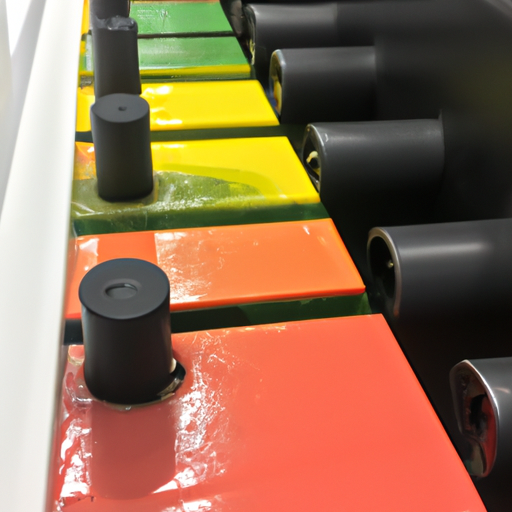

Title: Essential Considerations for Movement Panel Product Training

1. Safety Protocols (200 words) Safety should be the foremost concern when working with movement panel products. Training programs must emphasize the importance of adhering to safety protocols to prevent accidents and injuries. This includes understanding the risks associated with movement panels, such as electrical hazards, mechanical failures, and potential human errors. Training should cover proper handling techniques, personal protective equipment (PPE) requirements, and emergency procedures. Additionally, participants should be educated on the importance of regular maintenance and inspections to ensure the safe operation of movement panels.
2. Technical Knowledge (300 words) A solid understanding of the technical aspects of movement panel products is crucial for effective operation and troubleshooting. Training programs should cover the fundamental principles of movement panel technology, including electrical circuits, control systems, and programming languages. Participants should learn about the various components of movement panels, such as sensors, actuators, and controllers, and how they interact to achieve desired movements. Moreover, training should delve into the different types of movement panels available in the market, their capabilities, and limitations.
3. Hands-on Practice (300 words) Hands-on practice is essential to reinforce theoretical knowledge and develop practical skills. Training programs should provide ample opportunities for participants to work with actual movement panel products. This can include simulated scenarios, practical exercises, and real-world applications. By engaging in hands-on activities, trainees can gain confidence in operating movement panels, troubleshooting common issues, and fine-tuning settings for optimal performance. Additionally, hands-on practice allows participants to familiarize themselves with the user interface, programming software, and diagnostic tools associated with movement panel products.
4. Ongoing Support (200 words) Effective movement panel product training should not end with the completion of a program. Ongoing support is crucial to address any questions, challenges, or updates that may arise in the field. Organizations should establish channels for trainees to seek assistance, such as dedicated helplines, online forums, or regular check-ins with trainers. Furthermore, providing access to comprehensive documentation, user manuals, and troubleshooting guides can empower trainees to independently resolve issues. Regular refresher courses or advanced training sessions can also be offered to ensure that employees stay up-to-date with the latest advancements in movement panel technology.
Conclusion (100 words) Movement panel product training plays a vital role in equipping individuals with the necessary skills to operate, maintain, and troubleshoot these essential components. By considering safety protocols, technical knowledge, hands-on practice, and ongoing support, organizations can ensure that their workforce is well-prepared to harness the full potential of movement panel products. Investing in comprehensive training programs not only enhances productivity and efficiency but also promotes a culture of safety and continuous improvement within the organization.
Title: Essential Considerations for Movement Panel Product Training

1. Safety Protocols (200 words) Safety should be the foremost concern when working with movement panel products. Training programs must emphasize the importance of adhering to safety protocols to prevent accidents and injuries. This includes understanding the risks associated with movement panels, such as electrical hazards, mechanical failures, and potential human errors. Training should cover proper handling techniques, personal protective equipment (PPE) requirements, and emergency procedures. Additionally, participants should be educated on the importance of regular maintenance and inspections to ensure the safe operation of movement panels.
2. Technical Knowledge (300 words) A solid understanding of the technical aspects of movement panel products is crucial for effective operation and troubleshooting. Training programs should cover the fundamental principles of movement panel technology, including electrical circuits, control systems, and programming languages. Participants should learn about the various components of movement panels, such as sensors, actuators, and controllers, and how they interact to achieve desired movements. Moreover, training should delve into the different types of movement panels available in the market, their capabilities, and limitations.
3. Hands-on Practice (300 words) Hands-on practice is essential to reinforce theoretical knowledge and develop practical skills. Training programs should provide ample opportunities for participants to work with actual movement panel products. This can include simulated scenarios, practical exercises, and real-world applications. By engaging in hands-on activities, trainees can gain confidence in operating movement panels, troubleshooting common issues, and fine-tuning settings for optimal performance. Additionally, hands-on practice allows participants to familiarize themselves with the user interface, programming software, and diagnostic tools associated with movement panel products.
4. Ongoing Support (200 words) Effective movement panel product training should not end with the completion of a program. Ongoing support is crucial to address any questions, challenges, or updates that may arise in the field. Organizations should establish channels for trainees to seek assistance, such as dedicated helplines, online forums, or regular check-ins with trainers. Furthermore, providing access to comprehensive documentation, user manuals, and troubleshooting guides can empower trainees to independently resolve issues. Regular refresher courses or advanced training sessions can also be offered to ensure that employees stay up-to-date with the latest advancements in movement panel technology.
Conclusion (100 words) Movement panel product training plays a vital role in equipping individuals with the necessary skills to operate, maintain, and troubleshoot these essential components. By considering safety protocols, technical knowledge, hands-on practice, and ongoing support, organizations can ensure that their workforce is well-prepared to harness the full potential of movement panel products. Investing in comprehensive training programs not only enhances productivity and efficiency but also promotes a culture of safety and continuous improvement within the organization.